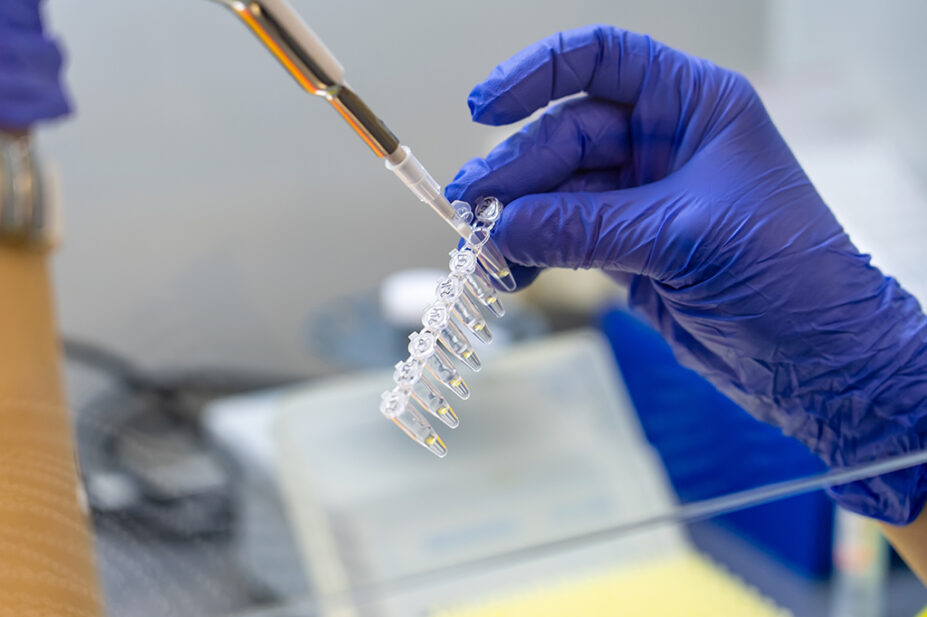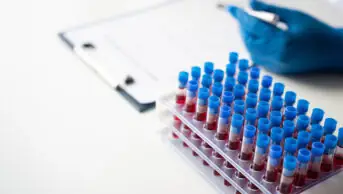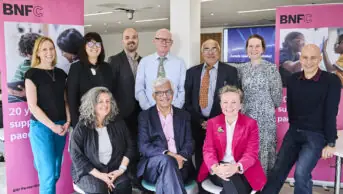
Shutterstock.com
Research based on England’s 100,000 Genomes Project has revealed further details on how genomics could help guide decisions about cancer treatments.
The study, published in Nature Medicine on 11 January 2024, analysed data from more than 13,000 tumour samples of 33 different types of cancer from participants in the 100,000 Genomes Project, in which 100,000 genomes were sequenced among patients across England.
Researchers from Genomics England combined whole-genome data with routine NHS data, such as data from X-rays, MRI scans, blood tests and treatment plans. The analysis identified specific genetic changes in the cancers between patients, which affected survival rates and patient outcomes and could guide decisions about treatments. It also revealed patterns across several cancers and uncovered different types of genetic changes that may explain treatment response or predict possible patient outcomes.
The study found that DPYD genetic variants, linked to fluoropyrimidine toxicity, were present in 5–10% of participants, which could guide recommendations for dose omission or adjustment in the treatment of breast invasive carcinomas; colon, rectum, and pancreatic adenocarcinomas; and head and neck squamous cell carcinomas.
The study also found that the level of tumour mutational burden was relevant in prognosis, and supported “the need for further refining of pangenomic biomarkers as both prognostic and predictive for immunotherapy response”.
Commenting on the study, Michael Hubank, head of clinical genomics at The Royal Marsden NHS Foundation Trust and professor in translational genomics at the Institute of Cancer Research, said: “This important study shows that whole-genome sequencing (WGS) alone can identify the vast majority of significant genomic variants required for clinical actionability.
“Correlation with clinical data has largely supported existing knowledge on the significance of particular gene mutations for outcomes. The study highlights that there may be new genomic biomarkers; for example, genetic signatures, like tumour mutational burden, that can only be discovered with WGS, and which may prove to be clinically important.”
Cara Mackenzie, lead in pharmacogenomics at the Royal Pharmaceutical Society, said: “Pharmacists have the knowledge, skills and abilities to provide patients with information on the best medicine options for them.
“Genetic testing, such as that in this study, will help us tailor those treatments to individual patients in the future. The areas of genomics and pharmacogenomics are advancing and are set to become revolutionary in terms of patient care in many clinical areas. We see pharmacists playing a core part in this going forward.”
The 100,000 Genomes Project reached its goal to sequence 100,000 genomes from NHS patients by the end of 2018, making it one of the largest national genetic sequencing projects of its kind. It aims to explore how genomics can be used in healthcare and its focus is primarily on making progress in the areas of cancer and rare diseases.
In April 2023, pharmacy bodies, including the Royal Pharmaceutical Society and ten other organisations, called for pharmacists to be involved in delivery and evaluation of genomic medicines services, saying that pharmacists’ skills could be used in emerging roles as genomic medicine expands to cover wider aspects of healthcare.


